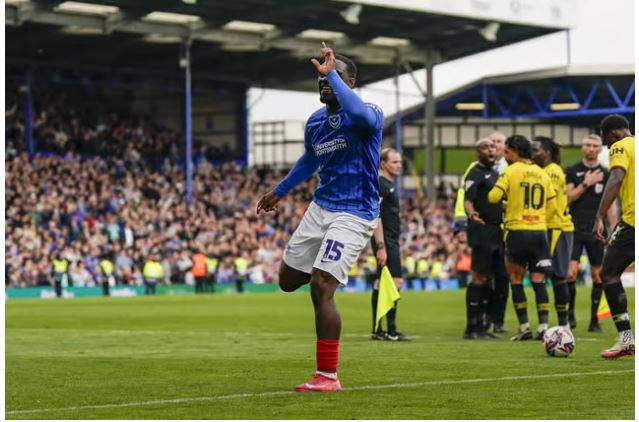Robbie Keane’s Ferencvaros Fend Off Orban’s Puskas Akademia – For Now
In a clash between two heavily state-supported clubs, Ferencvaros secured the Hungarian league title last weekend – but what does this signify for the broader landscape of Hungarian football?
By Tom Mortimer
Published: Wednesday, May 28, 2025
“This is why I love football!” shouted Robbie Keane through the smoky air, as he addressed Ferencvaros fans celebrating in Budapest after clinching their 36th domestic league crown. “For moments like this. For all of you!”
Although Keane’s tenure since January has been marked by inconsistent performances, he achieved his main goal: guiding Ferencvaros to their seventh consecutive league triumph with a 2–1 win over Gyor on the final day — a result that required just one point to seal the title.
Objective achieved, yet this season marked the toughest challenge Ferencvaros have faced in years. Unlike previous campaigns, their dominance was tested until the final round. For the first time in their seven-year title streak, they had a genuine contender — Puskas Akademia, the club closely tied to Hungarian Prime Minister Viktor Orban.
Originally known as Felcsut FC, the club was renamed in 2007 on the 80th birthday of Hungarian football legend Ferenc Puskas. Located in Orban’s childhood village of Felcsut, about 45km from Budapest, Puskas Akademia has ascended rapidly since Orban’s return to power in 2010. They reached the top flight by 2013 and came within a penalty shootout of qualifying for the Europa Conference League group stage this year, ultimately falling to semi-finalists Fiorentina.
The club plays its matches at the Pancho Arena, an architectural marvel built in 2014 within view of Orban’s childhood home. The stadium is more than just aesthetically impressive — it symbolizes Orban’s ambition, with football serving as both metaphor and political tool.
As Barnabas Varga of Ferencvaros celebrated scoring against Puskas Akademia earlier this month, the broader story was about more than football.
“This is one of the clearest examples in Europe of political agendas infiltrating football,” says Gyozo Molnar, a sport sociology professor at the University of Worcester. “The club has received an outsized share of public funding, revealing direct ties between political influence and sporting resources — despite minimal local support or historical pedigree.”
Indeed, Puskas Akademia has been a massive recipient of public funds. According to HVG, the club and its managing foundation controlled around €370 million from 2010 to 2024, funneled through subsidies, tax redirection, and sponsorships.
Though Ferencvaros still maintain the highest wage bill in Hungary, Puskas Akademia are close behind. Notably, they have outperformed Ferencvaros in youth development — their academy players appeared 118 times in the league this season, compared to just 30 from Fradi’s academy. As a developmental force, they are now overshadowing the country’s traditionally elite youth systems. At the senior level, winning the league seems like a matter of “when,” not “if.”
Heading into the final weekend, Puskas Akademia — who had led the league into April — needed Ferencvaros to slip up. But despite Ferencvaros’s unsteady form, they had a near-perfect run-in: seven wins and a draw (with Puskas) in their last eight matches. With goals from Gabor Szalai and Lenny Joseph, they wrapped up the title with little drama.
Still, Puskas Akademia is more than a football team. It is a deliberate projection of Orban’s ideology — an embodiment of political aspiration. The club lacks a deep-rooted fan culture, historical legacy, or wide support — averaging just 1,500 fans per game, largely due to visiting supporters. But it does possess power. And in Hungary, that’s often enough.
“Their swift ascent mirrors Orban’s political consolidation,” says Molnar. “Puskas Akademia acts as a symbolic monument to his leadership, helping normalize the redirection of public funds toward personal political ventures.”
But Ferencvaros is not without its political backing either. While Puskas Akademia is an invention of the Orban era, Ferencvaros has also benefitted from the ruling Fidesz party. The club receives government support through multiple channels: subsidies from ministries, tax breaks, and local authority funds.
Ferencvaros’s political ties are evident at the highest levels. In 2011, Gabor Kubatov — a senior Fidesz figure — became club president. At that time, Ferencvaros had been struggling, even playing in the second division after a financial scandal. But with its rich history and mass support, the club was a potent platform.
Kubatov came in with a vision: to use the club as a political tool, mobilizing its large fanbase and transforming it into a mouthpiece for national pride and government narratives.
“Fradi is now fully under Kubatov’s control, and their success is clearly serving a political purpose,” says Adam Feko of Magyar Narancs. “While there was initial fan resistance, dissent has largely been silenced. The underlying message: without Fidesz, the club would collapse.”
This is largely due to financial dependency. Investigative outlet Atlatszo revealed that between 2011 and 2019, Ferencvaros received at least 80% of its revenue from government-related sources. The goal? To turn them into a symbol of national pride, capable of competing on the European stage.
And that mission has, by many measures, succeeded. Ferencvaros has been Hungary’s dominant team for the past decade and have played in the group stage of European competitions six years in a row. This season, they even topped a Europa League group that included Porto, Fenerbahce, Nice, and Hoffenheim. The club has experienced a renaissance.
So, with Ferencvaros thriving and Puskas Akademia rising, is the project complete? Not quite. This isn’t a baton pass — it’s a dual-track strategy. Ferencvaros represents the historic people’s club harnessed by politics; Puskas Akademia is politics in concrete form. One is a reward. The other, a design.
“Ferencvaros and Puskas Akademia show two distinct models of political influence in sport,” says Molnar. “One is a rebranding of traditional prestige into a political tool. The other is a top-down creation linked directly to power. Together, they show how modern authoritarianism co-opts both legacy and novelty to reinforce control — all under the guise of cultural renewal.”
In this environment, Keane’s impassioned speech to supporters takes on a different tone. Because in today’s Hungary, success on the pitch is no longer just about sport. It’s about what that success symbolizes.
Ferencvaros’s record of domestic dominance and European visibility demonstrates what the state can build using tradition. Puskas Akademia, on the other hand, showcases what can be manufactured out of nothing — a raw political project engineered for visibility and control.
These two clubs represent more than a title race. They embody the blueprint of Orban’s Hungary: football clubs transformed into instruments of national messaging. Ferencvaros keeps winning the trophies, but it’s Puskas Akademia that most clearly reflects the long-term architecture of power.
In Hungary, success no longer needs to be enduring, popular, or even earned on sporting grounds. It simply needs to be useful. Stadiums, schools, media, and football teams now serve as tools in a broader system designed to reinforce allegiance and propagate a top-down narrative.
The pressing question, then, isn’t who will lift the next trophy. It’s whether football in Hungary can ever be extricated from the system that has now so completely absorbed it.





